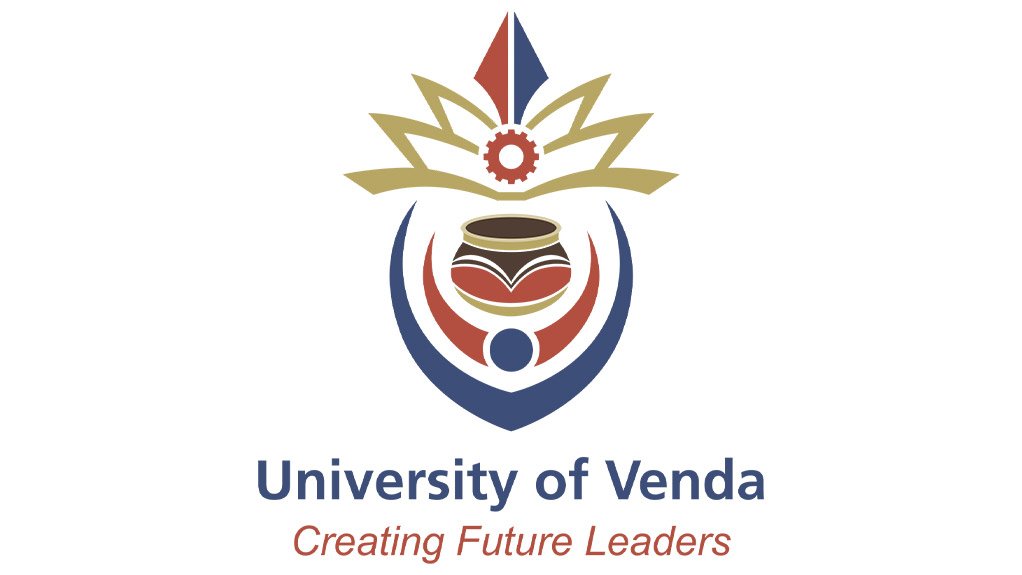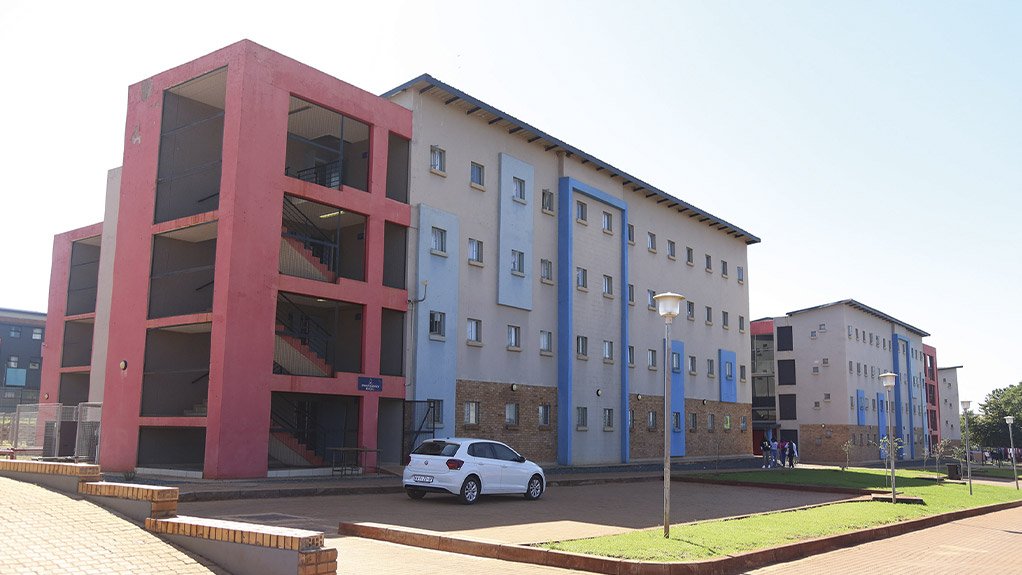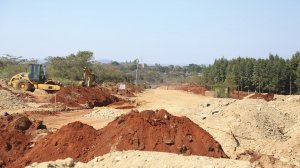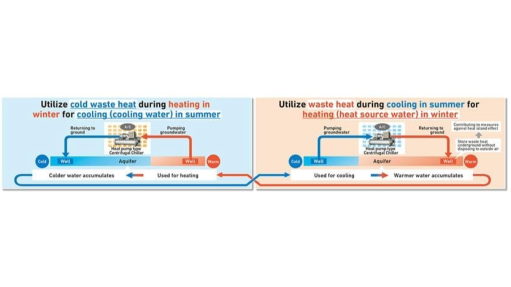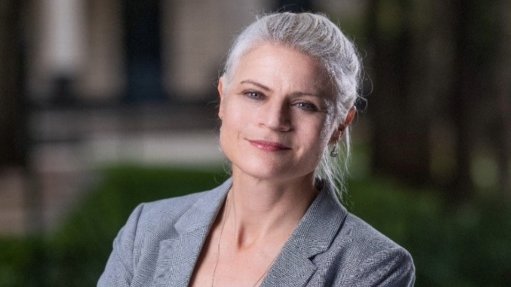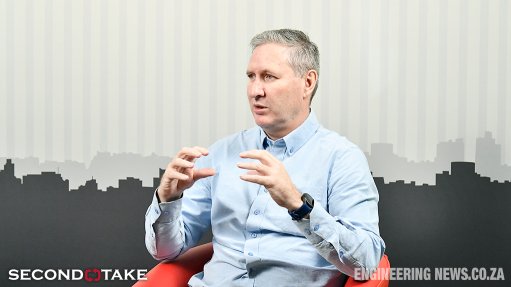New UNIVEN Faculty of Health Sciences building strengthens campus infrastructure
The completion of the University of Venda’s (UNIVEN) state-of-the-art, multi-million-rand Faculty of Health Sciences building at its campus in Limpopo is a key milestone in addressing the university’s legacy infrastructure development backlog, which has limited its student population.
Officially handed over to the university management by the contractor in July , the building accommodates four departments in the faculty while offering the latest infrastructural setting.
Costing about R248-million – almost R138-million from the Department of Higher Education and Training (DHET) and about
R111-million from UNIVEN council-controlled funds – the building will enable an increased number of health sciences students to enrol next year, says UNIVEN Vice Chancellor and principal Dr Bernard Nthambeleni.
While UNIVEN was meant to accommodate around 18 000 to 19 000 students in 2023, the university’s infrastructure backlog has limited its capacity to about 16 000 students.
“With the introduction of the Faculty of Health Sciences building, we now have more suitable facilities, which can accommodate 495 students and 191 staff members. The facility is also expected to improve our student graduation success rate through the introduction of state-of-the-art laboratories and a biokinetics centre, staff offices, nutrition labs and a cafeteria.
“The building will really begin to augment and improve our teaching and research conditions for our staff and students,” states Nthambeleni.
Addressing the Backlog
Infrastructure development is vital to UNIVEN’s academic goals, as the absence of readily available infrastructure compromises the university’s core business – teaching and learning.
With the assistance and enormous contribution of the DHET through its clinical training funding, the university is addressing its legacy of infrastructure backlogs brought about by a lack of funding but also an infrastructure development plan that was unaligned with the long-term needs of UNIVEN.
Through the introduction of a spatial develop-
ment plan framework, the university has been tackling its legacy backlog over the past five years by developing the required infrastruc-ture and procuring relevant and modern equipment. The framework also guides the institution’s infrastructure development in relation to the needs of its growing student population.
“Our infrastructure development was taking place on an ad hoc basis. Through our spatial development plan framework, we can ensure that we don’t find ourselves with another backlog that we are unable to resolve,” explains Nthambeleni.
Over the past five years, UNIVEN has invested about R800-million on infrastructure development projects. Most of these funds have been secured from the DHET and the Development Bank of South Africa (DBSA), but also include council-controlled funds.
Consequently, the university has enjoyed “a very good pass rate” based on its students and lecturers having access to better facilities that are conducive for learning, says Nthambeleni.
Infrastructure Under Development
Several other infrastructure projects are under way to improve the university’s infrastructure.
The university aims to finalise the refurbish-ment of on-campus student residences, such as River Side and Mango Groove, in September. This is in addition to completing construction of the Mvelaphanda female and male residences, comprising 900 beds each, in January 2022 and January 2023, respectively.
The multi-million-rand Mvelaphanda residences, which speak to UNIVEN’s growing need for on-campus accommodation, were funded through a R300-million loan received from the DBSA, R190-million from the DHET and about R46-million from UNIVEN council-controlled funds.
“One of the main challenges we face is that most of our students live off campus, which means that they do not enjoy the convenience of shorter travel times to class and have less time to benefit from the facilities, such as the library, at the university. Therefore, we believe that most of our students should be staying on site,” explains Nthambeleni.
By introducing these new residences that can jointly accommodate 1 800 students.
It begins to bring UNIVEN closer to this target and alleviates a lot of pressure in terms of the number of students that need to be accommodated at its campus. The university currently houses 3 955 students on campus. Tailored facilities for students living with disabilities were scheduled to be completed by the end of last month.
“We are also developing a centre for entre-preneurship on campus and are thankful for the funding we received from the Small Business Development Agency. The building is under construction and is expected to be completed by November this year,” elaborates Nthambeleni.
In addition, the university is renovating and expanding its main administration building to accommodate a larger number of staff. The project is progressing well and UNIVEN hopes to complete this project by December this year.
The construction of a building that will house a nursing simulation lab is also under way and is expected to be finalised by February 2024.
To further accommodate a growing student population and staff complement, UNIVEN is also increasing the number of access points to the university. There are two main gates to the university and the construction of a third, which includes a new road, is under way to reduce traffic congestion to and from the university. With construction having started in February this year, the new Punda Maria gate is expected to be completed by July 2024.
To reduce its reliance on the national grid and mitigate the impact of loadshedding on its students’ education, UNIVEN has also started to install solar photovoltaic panels.
As solar power is expensive when considering the inclusion of a battery energy storage system, the university is
first concentrating on the installation of solar panels and will later contemplate battery storage, when additional funds become available.
“We are also contemplating additional projects for 2024/25, which include a new building for the Faculty of Management, Commerce and Law, as well a new satellite campus in Makhado, which is about 70 km from the main campus. However, we have yet to finalise our list of potential projects,” concludes Nthambeleni.
Comments
Press Office
Announcements
What's On
Subscribe to improve your user experience...
Option 1 (equivalent of R125 a month):
Receive a weekly copy of Creamer Media's Engineering News & Mining Weekly magazine
(print copy for those in South Africa and e-magazine for those outside of South Africa)
Receive daily email newsletters
Access to full search results
Access archive of magazine back copies
Access to Projects in Progress
Access to ONE Research Report of your choice in PDF format
Option 2 (equivalent of R375 a month):
All benefits from Option 1
PLUS
Access to Creamer Media's Research Channel Africa for ALL Research Reports, in PDF format, on various industrial and mining sectors
including Electricity; Water; Energy Transition; Hydrogen; Roads, Rail and Ports; Coal; Gold; Platinum; Battery Metals; etc.
Already a subscriber?
Forgotten your password?
Receive weekly copy of Creamer Media's Engineering News & Mining Weekly magazine (print copy for those in South Africa and e-magazine for those outside of South Africa)
➕
Recieve daily email newsletters
➕
Access to full search results
➕
Access archive of magazine back copies
➕
Access to Projects in Progress
➕
Access to ONE Research Report of your choice in PDF format
RESEARCH CHANNEL AFRICA
R4500 (equivalent of R375 a month)
SUBSCRIBEAll benefits from Option 1
➕
Access to Creamer Media's Research Channel Africa for ALL Research Reports on various industrial and mining sectors, in PDF format, including on:
Electricity
➕
Water
➕
Energy Transition
➕
Hydrogen
➕
Roads, Rail and Ports
➕
Coal
➕
Gold
➕
Platinum
➕
Battery Metals
➕
etc.
Receive all benefits from Option 1 or Option 2 delivered to numerous people at your company
➕
Multiple User names and Passwords for simultaneous log-ins
➕
Intranet integration access to all in your organisation



